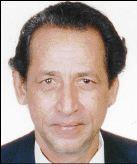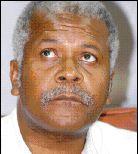

File photos
Williams (left) and MillerGlenda Anderson, Staff Reporter
Despite a dismal showing in the recent general election, minor parties which contested the island's 14th election say there is still a crucial need for alternatives in Jamaican politics.
"The voters have spoken, yet we still had a large percentage who did not go to the polls. This means that voters are really and truly disillusioned, and as long as that exists there certainly is a role for introducing a different way of doing things," said general secretary of the National Democratic Movement (NDM), Michael Williams.
The NDM which joined forces with the Jamaica Alliance for National Unity (JANU) and the Republican Party of Jamaica, (RPJ) to form the New Jamaica Alliance (NJA) ) fielded 32 candidates and received in excess of 3,000 votes.
The other contenders were the Imperial Orthodox Party and the United Peoples Party.
Mr. Williams was joined in his optimism by Republican Party co-ordinator Allan Martin who reasoned that, "In any democratic country in the world it is expedient to have a referee party (which is essentially what we are), if for nothing else but to be a lobby group."
Pointing to the overall low voter turnout among the lowest in history and the percentage of uncommitted voters as indicated in recent polls, some say that voter sympathies may be shifting. "It is very significant that over 45 per cent of the electorate stayed home," Mr. Martin said.
"I think the electorate has said a number of things. One is that it certainly doesn't want the JLP in its present format," Mr. Williams said. "But it also sent a message to the PNP that they are not happy with them either."
The parties cited several reasons for their poor showing, with the main one being scarce resources which hampered efforts to effectively campaign.
"We didn't have any resources to work with. So what the NDM/NJA did was that we included a lot of village meetings and the media had been helpful in that we were accommodated on a number of platforms," campaign manager Robert Marsh explained.
In addition, Republican Party co-ordinator, Allan Martin, said that a few other factors had influenced the day's results for the third parties.
"The NDM as the engine of the Alliance had taken a series of body blows, we had our president and founder leaving, we had to find new headquarters, limited funding for the elections and the relatively short time to prepare for the elections.
"In a number of respects we are a little disappointed but I think we did a lot better than the polls indicated we would have."
But JANU Chairman, Rever-end Al Miller, says that continuation may be conditional. "If change genuinely takes place there is no need for the existence of the third party. If that happens it's 'mission accomplished' for me," he said. "But as long as the problems that the nation has exist and as long as 45 per cent of the electorate has disengaged itself from the process, then there is a role for third parties. The difficulty is now to find the best formula to present the best alternate in the interest of the people.
"If it were all about gaining political power then it would be easy to get discouraged and give up but it has always been about national transformation, political change, not political power. So for third parties it has to be a continuing role once they have a mission that is bigger than just seeking power."
Still, the NJA Chairman says the venture has been successful for the fledgling party.
"I believe we have accomplished much. Both parties at least publicly have been using the language and there is now an openness and acknowledgement of those principles which we had been putting forward. For example, the principles of united governance, unity in general, appears to have been accepted by both the major parties. Our role now will be to pressure them to ensure that it is more than just talk, but implementation. Certainly our strongest role is going to be advocacy."
Efforts to contact representatives of the United People's Party (UPP) were unsuccessful as members were said to be off the island.















